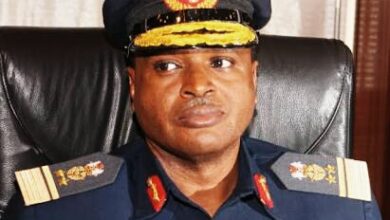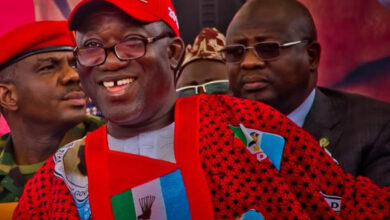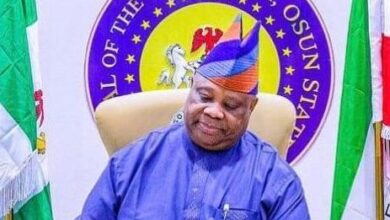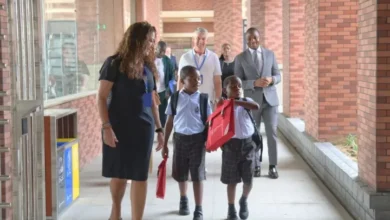Tinubu and Nigerian Economy: Beyond Deceits of Procuring Foreign Endorsements?

By: Ifeanyi Izeze
It is easier to talk if you don’t think but if you think you will think thoroughly before talking, and when you talk, you will work. By now if they have been thinking, it should be clear to the President, Bola Tinubu and operators of his government that ‘Emilokan’ (it’s my turn), is not an economic policy.
They claimed to understand the problem at hand and the President himself told us not to sympathise with him: “don’t sympathise with me, don’t pity me. I know what I am getting into.”
Is it not tragic that government officials and their media surrogates have amplified only one soundbite from remarks, where Dr. Okonjo-Iweala credited the administration for “stabilising the economy,” while deliberately ignoring her more serious call for urgent measures to grow the economy and establish social safety nets for millions of Nigerian families suffering the negative impacts of the government’s reforms?
Okonjo-Iweala’s recent comments on President Tinubu and the Nigerian economy “have been seized upon by government officials and their media allies as if their scandalous implementation of hard reforms, which have condemned the majority of Nigerians to absolute poverty and destroyed millions of jobs, had received endorsement by the oracle herself. This is not correct.”
How do you reconcile a government flaunting wholesale outdated economic theories based on dogmatic declarations, whilst procuring endorsements of foreign experts to re-echo and applaud same regardless of the naked extremely contradictory worsening economic situation on ground starring everyone in the face?
Headline inflation remains unyielding, sitting at 22.22 percent as of June, with food inflation at 21.97 percent, meaning that millions of Nigerians are paying more, not less. Petrol prices now average N1,037.66 per litre, still a significant burden on households and small businesses.
The naira trades at around N1,530 to the dollar at the official window — drastically weaker than President Tinubu’s pre-reform levels of N460 — eroding purchasing power across the board.
It should be clear to the government that it is the Tinubu administration’s policy choices — irrational fuel-subsidy removal, naira devaluation, tariff hikes on electricity and transport and almost every other goods and services — that have triggered this distress and made social safety nets not optional but essential. Yet these social programs have either been administered haphazardly or rather dishonestly, suspended, or had negligible impact.
So when the African Democratic Congress (ADC) recently called on President Tinubu to fully confront the economic challenges facing Nigerians instead of “cherry-picking” comments made by World Trade Organization (WTO) Director-General, Dr. Ngozi Okonjo-Iweala, to score political points, those who are naïve took it as another opposition criticism. No, it is not at all, it was a clarion call for all it means.
That the federal government chose to ignore the real message in the comments by Okonjo-Iweala on the state of the Nigerian economy, instead prefer to celebrate the headlines is nothing but dodging to take responsibility for its actions or more aptly inactions.
It is very unfortunate that the Tinubu administration is more interested in “external validation” rather than taking responsibility for policies that have worsened living conditions.
Dr. Okonjo-Iweala knows that a stable economy is one that is growing in real terms, led by jobs and productivity. She knows that a stable economy is one that is able to guarantee minimum standards of living for the people.
How come the government chose to ignore what she is really saying that the economy is not growing, jobs are not being created, and too many people are suffering as a direct consequence of President Tinubu’s ill-conceived and badly implemented reforms?
The government seem to be deliberately ignoring that part of her message and celebrating only the superficial aspects that at best sounds like “propaganda economics” or more aptly another ‘Emilokan economic policy.’
Nigeria’s Gross Domestic Product (GDP) grew by 3.13 percent in the first quarter of 2025 and just above 3 percent in the second quarter, figures that could best be described as unimpressive compared to the administration’s promises of very strong recovery.
Inflation stood at 22.22 percent in June 2025, with food inflation at 21.97 percent, while petrol prices averaged N1,037.66 per litre, and the naira traded at over N1,530 to the dollar.
Are these numbers abstracts, no. They translate directly into hunger, joblessness, and despair for millions of Nigerians. The Tinubu administration’s policy choices, fuel subsidy removal, naira devaluation, tariff hikes on electricity and transport have unleashed untold hardship on Nigerians.
Every well-meaning Nigerian knows that celebrating the mere appearance of ‘stability’ is pyrrhic. Such candour from a global economic leader like Dr. Okonjo-Iweala underscores the urgent need for federal government policies that go beyond rhetoric and propaganda but address the daily harsh realities of millions of Nigerians under the APC-led Tinubu’s government.
Look at the CBN Governor, he thinks if he keeps raising interest rates he can fight inflation. What Cardoso is doing in CBN makes no sense as several economic experts have warned because what’s driving inflation in the country is factor cost and not the availability of credit.
The problem they have with the economy is that they went and devalue the currency and have illusion of money in which case you will say at FAAC we used to share two trillion but now we share ten trillion but they failed to acknowledge that the present value of ten trillion is not up to the value when you were sharing two trillion simply because of the gross devaluation of the Naira.
As rightly said by a concerned Nigerian, they are simply not running the country, they’re doing business. They are business people and they don’t see us as citizens, they see us as their customers. So their mercantile approach prompts them to always see their customers and think how they can make more money from them and that’s why you see them taxing everything needed for life and basic living.
They are not willing to comply with Chapter Two of the Nigerian Constitution which stipulates how governance should be done in the country. What’s the responsibility of government? Call anybody in government, they are not responsible for anything. The minister of Water Resources is not responsible for whether you have water or not, the minister of Education is not responsible for education outcome whether the students pass or fail WAEC/NECO or Jamb. The minister of Health is not responsible for live expectancy or medical outcomes. We have people who are in power but they are not in government because they are not governing.
According to a recent report by the National Bureau of Statistics, FDI to Nigeria sharply declined by about 70 per cent in the first quarter of 2025, falling to only $126.29 million from $421.8 million in the last quarter of 2024. Of the total capital importation of about $5.64 billion in the first quarter of 2025, FDI accounted for only about 2.24 per cent, compared to 8.2 per cent in Q4 2024.
Of course how do you expect sustainable economic growth and development to be achieved under the current poor leadership and weak governance structure -problems that are clearly reflected in declining FDI and our poor performance in key governance indicators.
To further illustrate our precarious situation, capital flows to the manufacturing sector declined exponentially by 32.1 per cent, dropping to only $129.92 million in Q1 2025 from $191.92 million in the same quarter of 2023. There is no better confirmation of the lack of trust in this government, whose reforms remain uncoordinated and largely reactive.
Available statistics show that in 2024, while global FDI flows declined, FDI to Africa significantly increased to $97 billion—a rise of about 75 per cent compared to 2023. Europe, the United States, and China were the main sources of this FDI. Egypt attracted the highest share in Africa, with $46.58 billion. Other top recipients included Ethiopia ($3.98 billion), Côte d’Ivoire ($3.80 billion), Mozambique ($3.55 billion), Uganda ($3.30 billion), Democratic Republic of Congo ($3.11 billion), South Africa ($2.47 billion), Namibia ($2.06 billion), Senegal ($2.02 billion), Guinea ($1.83 billion), and Morocco ($1.64 billion).
Most disappointingly, our dear nation, Nigeria—the so-called “Giant of Africa”—received only $1.08 billion, about 1 per cent of Africa’s total FDI, representing a decline of about 42 per cent from 2023. Worse still, after this 42 per cent drop between 2023 and 2024. FDI to Nigeria has further declined by 75 per cent between Q4 2024 and Q1 2025.
Whether anybody wants to hear it or not, we cannot achieve sustainable growth and development with ineffective leadership and a weak government. This is the truth, the whole truth and nothing but the truth. God bless Nigeria!
(IFEANYI IZEZE writes from Abuja and can be reached on: iizeze@yahoo.com; 234-8033043009)
Post Views: 9





